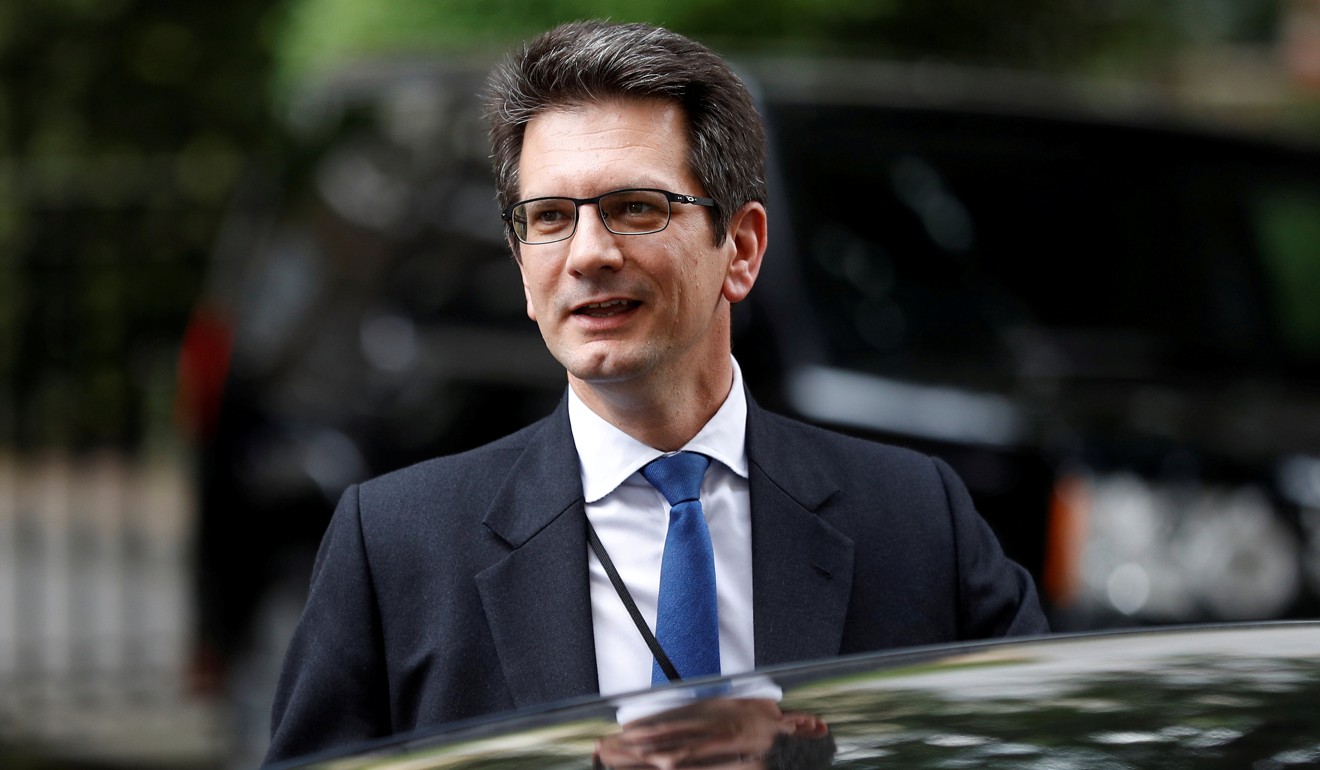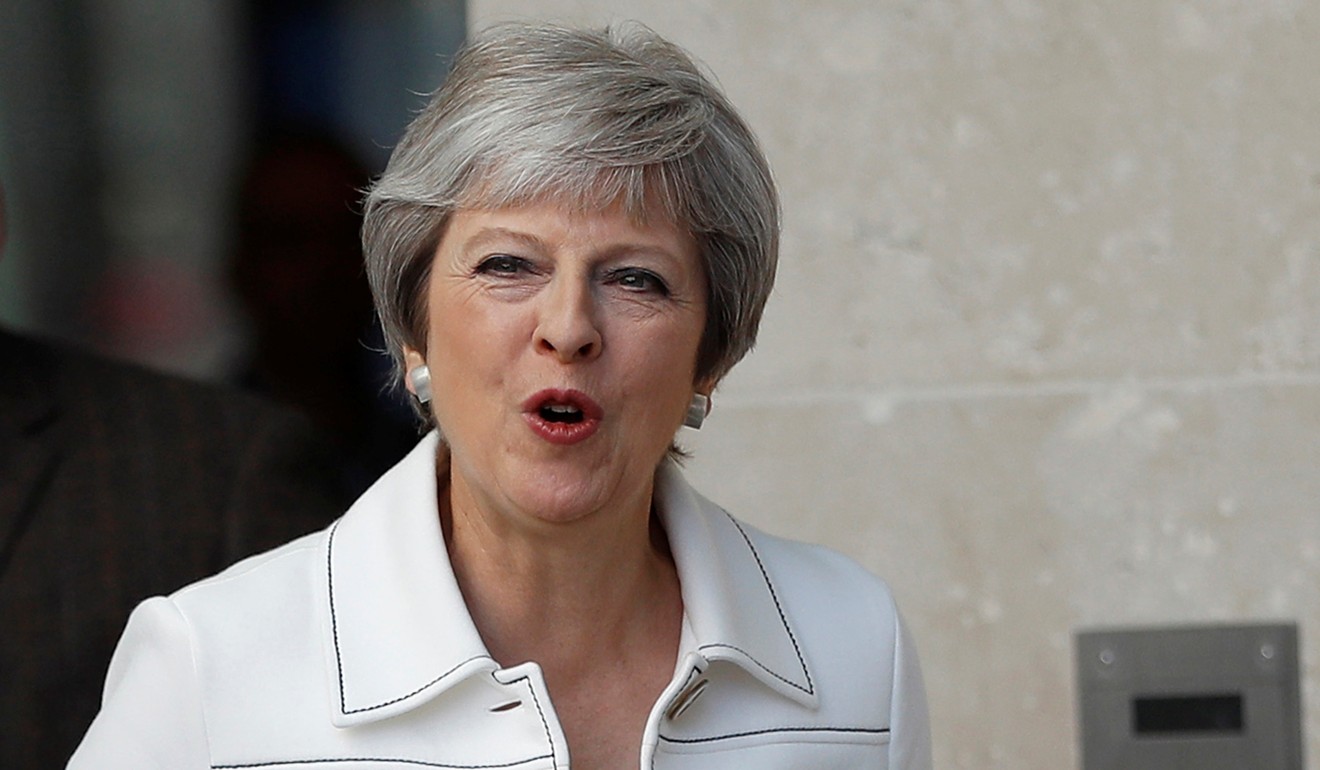
The WhatsApp rebellion: ex-minister Steve Baker rallies Brexit hardliners against UK PM Theresa May
Brexit hardliners are expected to stage a show of strength in the House of Commons, a possible precursor to a leadership challenge against May
British Prime Minister Theresa May faces a concerted rebellion from the hard Brexit wing of the Conservative party on Monday, as MPs unhappy with her Chequers compromise prepare to mount a show of strength by voting for their amendments on a crucial customs bill.
The party’s European Research Group says it will reject any last attempts at compromise by Number 10 as they hope to force May to change course over Brexit or risk a no-confidence vote before the summer break by demonstrating the depth of their support.
A special ERG whipping operation, using the WhatsApp messaging service, has been created by Steve Baker, a former Brexit minister who resigned from the government last week, although ERG insiders would not put a number on how many they expected to rebel in the Commons.

Last week, members of the hard Brexit group put down four amendments to the taxation (cross-border trade) bill due to be debated on Monday evening, aimed at halting the customs plan announced by May at Chequers nine days ago.
The level of support they attract will draw intense focus, particularly if the number significantly exceeds the 48 required to call for a vote of no confidence in May’s leadership of the Conservative party.
May’s leadership has been precarious since she unveiled her proposed new Brexit negotiating strategy at her Chequers residence and detailed it in a white paper last week. It prompted the resignation of Boris Johnson and David Davis from the cabinet, as well as the departures of Baker and a string of more junior ministers.

Johnson returned to the political fray with his first column for Monday’s Daily Telegraph since he resigned from the government over the Chequers compromise. It was dedicated to “global Britain,” the slogan or theme of his two years at the Foreign Office. The former cabinet minister said he would “resist – for now – the temptation to bang on about Brexit” and did not discuss the circumstances or reasons for his resignation or relationship with May.
Defending his record in office he added “don’t tell me that the UK is losing diplomatic influence” citing the international response to the Novichok poisoning which saw 28 countries expel 153 “Russian spooks”.
Reports at the weekend suggested that about 40 of the 48 MPs needed had lodged no-confidence letters with the chairman of the party’s backbench 1922 Committee after May had indicated that the UK was prepared to sign up to a “common rule book” for food and goods after Brexit.
There is a belief in Conservative circles that a no-confidence vote in May will have to be called by Wednesday this week as there will otherwise not be time to hold it before parliament breaks up for the summer on Tuesday 24 July. To win, the prime minister has to win over half of the Tory party’s 316 MPs, and if she does, another no-confidence vote could not be held for 12 months.
Speaking to the BBC’s Andrew Marr, May indicated she would seek to fight off any challenge that emerged before the summer recess, saying: “I want to focus people’s minds on how you ensure you achieve that prize, the benefits of leaving the European Union.” She added: “I have always said I’m in this for the long term.”
The prime minister also said that the taxation (cross border trade) bill, which seeks to allow the UK to implement its own customs regime after Brexit, and a related trade bill on Tuesday, were “an important part of our no-deal preparations” because both were necessary to prepare the UK for life as an independent trading nation.
The most talked-about of the four amendments proposes to make it illegal for the British taxman to collect duties for the European Union without reciprocal arrangements, after May proposed that the UK would collect tariffs on goods heading for the EU after Brexit. It has been signed by 11 Tory MPs including former leader Iain Duncan Smith, former cabinet minister Priti Patel and Rees-Mogg.
The report stage of the bill will also see MPs debate a long-awaited amendment that would keep the UK in the EU customs union post-Brexit that is supported by Labour, the SNP, the Lib Dems and two Tory Remainers, Anna Soubry and Ken Clarke.
Supporters of the amendment, however, indicated it may not be moved to a vote on Monday night, partly because Remain-supporting Conservatives do not want to undermine the prime minister when she is vulnerable on her right flank. It could be debated by MPs when the bill returns from the Lords, they added.
The bill is also due to have its third reading on Monday, and it could be in jeopardy if the angry Tory Brexiters join with Labour, the SNP and the Lib Dems, who are expected to vote against it.

